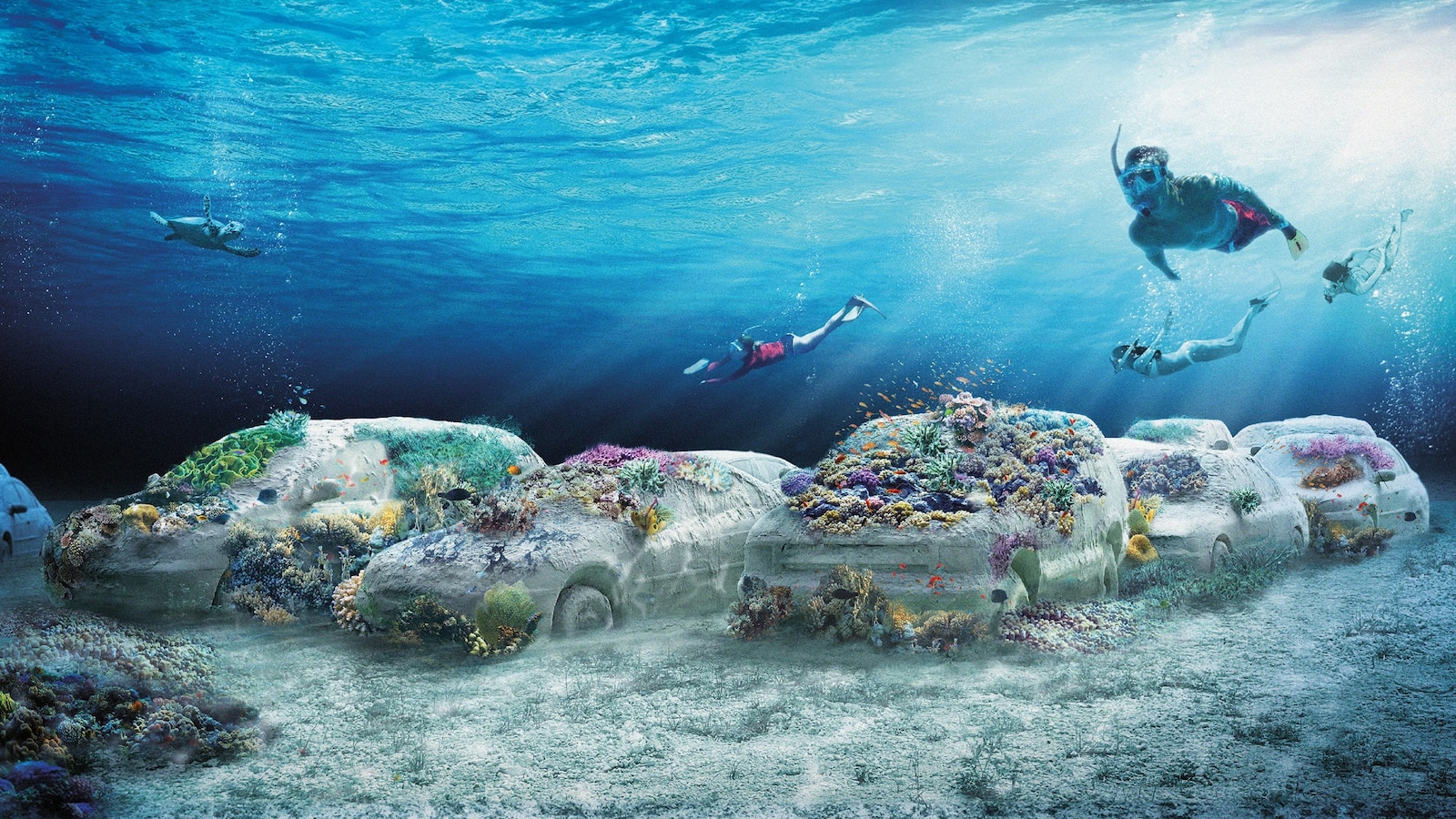Artist submerges 22 ‘cars’ off the coast of Miami to draw attention to environmental restoration

An artist is submerging 22 “cars” off the coast of Miami Beach to draw attention to the environmental restoration needed to rejuvenate South Florida’s reef system.
The “cars” are actually sculpted from eco-friendly marine concrete — an effort to bolster the barrier reef system in an aesthetically pleasing way, according to project organizers.
The installation, named “Concrete Coral” by contemporary artist Leandro Erlich, is one of the features of The Reefline, a 7-mile public underwater sculpture park that includes a snorkel trail along the hybrid reefs installed to fortify the reef system.
Artificial reef systems have been popping up along U.S. coastlines in recent years in an effort to protect beaches from erosion and rising sea levels. But other artificial reefs are “really ugly,” and project organizers wanted an aesthetically pleasing reef system to parallel Miami’s storied art scene, Ximena Caminos, founder and artistic director of The Reefline, told ABC News.
Erlich chose to carve the concrete blocks into cars because of the “powerful symbol” they represent for greenhouse gas emissions, Caminos said.
“It’s not so much about transportation,” Caminos added. “It’s more about transformation and transforming that symbol into something that actually supports nature.”
Each car weighs about 13 tons and is seeded with corals, Caminos said, adding that they are expected to provide homes to marine life, promoting biodiversity in the region.
Other “experiment” hybrid reefs installed off South Beach are thriving, which gives organizers confidence that their “beautiful” structures will do the same, Caminos said.
“They’re teaming up with life,” she said. “They’re totally colonized.”
The installation will be unveiled on Oct. 20, and visitors will be able to snorkel next to them starting in November, Caminos said.
Florida’s Reef Tract — the largest reef system in the continental U.S. and the third-largest reef system in the world — once flourished along the coast of Miami.
But warming ocean temperatures, rising sea levels, disease and human activity, such as pollution, have severely degraded Florida’s reefs, according to the Florida Keys National Marine Sanctuary.
Additionally, an unprecedented marine heatwave in 2023 caused bleaching events that severely damaged a wide swath of Florida’s reefs, according to Climate.gov.
Miami is the perfect place to install an underwater public park because it is the “canary in the coal mine” for regions experiencing impacts from climate change, Caminos said.
“It’s a city that’s sinking. It’s dealing with sea level rise, pollution,” she said. “It has all the problems.”
Organizers hope that locals and tourists alike will be drawn to The Reefline and that other cities at the forefront of climate change find ways to incorporate ecotourism into their offerings.
“We need to change and transform the way we behave towards nature and toward the environment,” she said.



